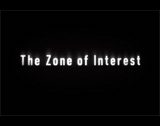
|
![]()
Title Screen Film Genre(s), Title, Year, (Country), Length, Director, Description 


Air (2023), 111 minutes, D: Ben Affleck
Director Ben Affleck's sports-themed biographical drama told the true backstory of the best-selling Air Jordan basketball shoes sold by Nike. It was based on a script by first-timer Alex Convery. The Oregon-based company Nike was struggling in the mid-1980s, when Chairman and Marketing VP Rob Strasser (Jason Bateman) and company co-founder and CEO Phil Knight (Ben Affleck) commissioned Nike employee, shoe salesman and basketball talent scout Sonny Vaccaro (Matt Damon) to attempt to entice third-pick rookie BB player Michael Jordan (Damian Young) to switch his allegiance from Adidas and Converse to Nike. The company was willing to offer Jordan $250,000 (the entire BB division's budget) to brand-name a new shoe after Jordan, known as "Air Jordan" - using Air Sole technology. With the Jordan family matriarch Deloris Jordan (Viola Davis) offering advice ("A shoe is just a shoe until my son steps into it"), Michael fielded competitive offers, but chose Nike after they offered him a bonus - a percentage of every Air Jordan sold, a revolutionary concept. An epilogue revealed that the Air Jordan earned $162 million in one year, and transformed Nike into multi-national corporate giant.

American Fiction (2023), 117 minutes, D: Cord Jefferson
Director Cord Jefferson's directorial feature debut film was loosely based on Percival Everett's 2001 novel Erasure. It told about acclaimed but frustrated black writer and professor Thelonious "Monk" Ellison (Jeffrey Wright) living in Los Angeles. His academic writings were not best-sellers, due possibly (acc. to his publisher) for being "not black enough" and for not pandering to sensational and offensive depictions of the black experience. The publishing world would much rather publish the work of up-and-coming author Sintara Golden (Issa Rae), such as her gritty novel We Lives in Da Ghetto. Out of spite and due to his need for funds for the care of his elder mother Agnes (Leslie Uggams) in Boston, the embittered and drunken Ellison wrote a satirical manuscript titled My Pafology - using the alias name Stagg R. Leigh. The book was guaranteed to sell, due to its depictions of drug dealing and urban crime in the black community. His surprisingly successful book (later retitled "F--K") exposed the pressures of the 'mostly white' publishing world on black writers, when "Stagg" (Ellison) was forced to take the persona of the author and hide his identity by posing as a violent and convicted felon (a fugitive from justice). "Stagg" was even offered a film adaptation by Hollywood producer Wiley (Adam Brody). The book was submitted for a Literary Award, and when "Stagg" received the grand prize trophy (its main competitor was Sintara's book) from votes by the white judges, he revealed his true identity - as he approached the stage. The film's plot twist was that everything seen in the film up to this point was Monk's screenplay, and he was discussing possible endings to his screenplay with Wiley. The drama concluded with possible alternate endings to the script, including the outrageous yet crowd-pleasing conclusion in which Monk was shot to death on stage by police officers at the awards ceremony.




Anatomy of a Fall (2023, Fr.), 151 minutes, D: Justine Triet
French co-writer/director Justine Triet's tense who-dun-it crime drama and arthouse film, and also part murder-mystery and thriller that concluded with a courtroom trial, was about the search for the truth surrounding a death that was never shown on-screen, except for its aftermath. In the beautifully-constructed plot, writer and stay-at-home French husband Samuel Maleski (Samuel Theis) with writer's block mysteriously fell from the top 3rd floor of his isolated chalet in Grenoble in the French Alps. He was found dead in the snow with bloody head injuries near the chalet by his visually-impaired 11 year-old son, Daniel Maleski (Milo Machado Graner), who was returning from a walk with his border collie guide-dog named Snoop. When he died, Samuel had been working on converting the chalet into an AirBnB to raise extra funds for the family. Was it a suicide, or murder, or an accident? German-born, France-based, bisexual German novelist Sandra Voyter (Sandra Hüller), Daniel's wife, was considered a possible suspect. The film presented many theories, conjectures, trauma reports, drawings, and personal testimonies to try and determine the cause. For instance, Samuel had allegedly attempted 6 months earlier to overdose on aspirin. The investigation and outcome became more and more twisted and obfuscated, as new evidence emerged, and various details were uncovered. Sandra and Samuel were obviously a dysfunctional couple in a troubled and imperfect marriage - full of blame for each other - and often engaged in arguments. The depressed and resentful Sandra held Samuel accountable for Daniel's blindness due to his neglect, and he was upset with her for being overly-controlling, unfaithful and for plagiarizing some of his ideas for her own writings. When Sandra was accused of murder - curiously foretold by one of her own recent novels, she hired an old friend and lawyer named Vincent Renzi (Swann Arlaud) to defend her, knowing that he was in love with her. The prosecution contended that Sandra had struck her husband in the head before he plummeted to the ground. As the film concluded, young Daniel took the witness stand to either clear or convict his mother of the crime. His suspicions about his father's suicidal thoughts led to Sandra's acquittal.



Barbie (2023), 114 minutes, D: Greta Gerwig
This was the first live-action Barbie film, directed by Greta Gerwig who also co-scripted the screenplay with Noah Baumbach. The popular and creative blockbuster became the highest-grossing (domestic) film of the year 2023. After homage to the 'Dawn of Man' sequence in 2001: A Space Odyssey (1968), the fantasy-comedy opened in Barbie Land, a perfect, matriarchal, bubble-gum pink world in the 1950s where a very tall and perfect, mass-manufactured Barbie lived, described by the narrator (Helen Mirren): "Since the beginning of time, since the first little girl ever existed, there have been dolls. But the dolls were always and forever baby dolls, until..." Barbies ruled in Barbie Land, and could be anything they wanted to be, including President (Issa Rae), physicist (Emma Mackey), or a Nobel Prize-winning writer (Alexandra Shipp). The male complements to Barbie were the handsome, sexless Ken dolls, who spent their days at the beach performing cheerleader moves. The main Stereotypical Barbie was portrayed by Margot Robbie, who explained: "I'm Stereotypical Barbie. I'm like the Barbie you think of when someone says, 'Think of a Barbie.' That's me." She drove around in a pink convertible and spent her days having fun. But then during a dance party and after, she began to experience problems - blemished skin and cellulite, bad breath, a cold shower, a burnt waffle, flat feet, falling off a roof, and thoughts of mortality and death that haunted her: ("Do you guys ever think about dying?"). After consulting with Weird Barbie (Kate McKinnon), she learned that she had to venture into the Real World to correct the "malfunction" or unhappiness in the corresponding little girl who was playing with her. Her bleach-blonde dream guy, the original Beach Ken (Ryan Gosling) stowed away in her convertible to join the heroine for the adventurish ride into the flawed, male dominated world of Los Angeles: ("Where you will don neon and Rollerblades, and enter the country of California"). During their odyssey as life-sized versions of themselves, they were accidentally arrested several times, and Barbie was flabbergasted: ("Everything is backwards here. Men look at me like I'm an object. Girls hate me. Everyone thinks I'm crazy, and I keep getting arrested"). After Ken's discovery of the patriarchal world, Ken was pleasantly excited by his acceptance, and excitedly returned to Barbie Land. During Barbie's "existential crisis," she met up with the unhappy human girl, tweenish Sasha (Ariana Greenblatt), the daughter of Mattel company employee Gloria (America Ferrera). Sasha condemned Barbie for promoting unrealistic beauty values: "You've been making women feel bad about themselves since you were invented....You represent everything wrong with our culture. Sexualized capitalism, unrealistic physical ideals...You set the feminist movement back 50 years. You destroy girls' innate sense of worth and you are killing the planet with your glorification of rampant consumerism." It was a devastating blow to Barbie, and she ran off in tears. Meanwhile, Mattel's CEO (Will Ferrell) who had manufactured her, heard about Barbie's existence, and wished to capture her and deport her - and put her back in her life-sized sealed box and send her back to Barbie Land: ("No one rests until this doll is back in a box!"). The Mattel CEO and his subordinates pursued Barbie back to Barbie Land, where to Barbie's shock, she learned that the newly-empowered Ken dolls had taken over the society and enslaved the Barbies as compliant girlfriends, maids, and housewives. A speech about expectations by Gloria: ("Never forget that the system is rigged. So find a way to acknowledge that, but also always be grateful") inspired Barbie (and others) to be confident enough to save Barbie Land, by turning the Ken dolls against themselves to distract them, while Barbie Land's original matriarchal Constitution was restored and reinstated. In the film's conclusion, the Mattel CEO agreed to promote equality for the Kens, and Barbie was encouraged after a meeting with the spirit of Ruth Handler (Rhea Perlman), Mattel's co-founder and her creator, who told her that she was in charge of her own changing destiny: ("We mothers stand still so our daughters can look back to see how far they've come"). Realizing that she had choices in her evolution, Barbie decided to return to the real world as a human with the name Barbara Handler.


The Boy and the Heron (2023, Jp.), 124 minutes, D: Hayao Miyazaki
This semi-autobiographical anime fantasy adventure from Studio Ghibli (Miyazaki's 12th feature after a 10 year absence) with stunning hand-drawn art was similar to Alice's Adventures in Wonderland. In the imaginative coming-of-age tale, it was a story touching on themes of grief, friendship, and how to magically come to terms with assaultive Allied forces of destruction of B-29 bombers in the real world. In the film's harrowing opening set in 1943 during WWII, 12 year-old child Mahito Maki witnessed the loss of his mother Hisako in a blazing Tokyo hospital fire. A year later, Mahito's businessman father Shoichi Maki - an air munitions factory-owner, made plans to immediately marry the boy's Aunt Natsuko (his late wife's look-alike younger sister) and impregnate her - and the docile female became Mahito's stepmother. The still-grieving, yearning and despondent boy, with recurring nightmares of attempting to rescue his mother, moved to Natsuko's family's cottage in the Japanese countryside - a fairy-tale-like place, where various maids and servants took care of needs. Near a remote abandoned tower (built by his stepmother's Grand Uncle, an architect and wizard), Mahito met an unusual, enchanted, talking gray heron (a hidden disguise?) who would guide him. The very-depressed boy was being bullied in school, and while blaming himself for his mother's death, he also was inflicting harm on himself by striking his head with a rock to cause a concussion. The heron lured Mahito to a portal door, along with one of the maids named Kinko, with the promise of finding the boy's ill and missing, pregnant stepmother Natsuko, who had wandered trancelike into the woods toward the tower. They entered into a surreal and fantastical parallel universe (with magical underworlds of both the living and dead). The shape-shifting heron revealed itself as a human, wingless Birdman (underneath, he was a small, wizened old man with human teeth and gums). They also encountered visually-fantastical creatures: a dying and starving species of renegade pelicans, a younger version of Kinko as an adept fisherwoman, a female pyrokinetic fire-figure named Himi, and floating cute, white puffy and gelatinous warawaras (human spirits or souls with dotted eyes and short appendages) that matured and were reborn into humans after floating upwards into the real world. However, Mahito was shocked to see that the warawaras were being devoured by the pelicans. They were also confronted by large, flesh-eating, hungry cannibalistic fascistic green parakeets, led by a Mussolini-like Parakeet King, who were holding the pregnant Natsuko captive. Natsuko was being kept in a delivery room within the magical tower, protected by paper seals. Their plan was to use her unborn child in their quest to rule and control the world. Mahito became friends with Lady Himi (whose gift of fire connected her to his mother's tragic death) and then realized that she represented a younger version of his birth mother. She was accepting of her fate when warned by Mahito, and returned to her own time to be his mother. The young boy became a hero when he had to rescue his new stepmother Natsuko in this other worldly environment, and he learned to become more appreciative and accepting of her. As the film progressed, it was unclear where the narrative was going. In a dream, Mahito met his deceased Granduncle, the wizard, who was struggling to maintain balance in this miraculous world with a set of stone rocks or building blocks (although they were filled with impurities or malice). The Granduncle offered Mahito wisdom and wanted him to become his heir and successor and inherit his role. Mahito was given a choice - remain in the magical realm and try to recreate it into something more peaceful, or return to the real world with grief, pain, and sadness. The Granduncle's nephew decided to leave and return home - now accepting of his new stepmother, and knowing that he could never build a perfect world without pain or malice. It appeared that the boy was psychologically transformed, and had dealt with his traumatic grief and distress over his mother's passing, and was learning how to cope: ("Whether this world becomes beautiful or an abomination is entirely in our hands").

The Holdovers (2023), 133 minutes, D: Alexander Payne





The Killer (2023), 118 minutes, D: David Fincher




Killers of the Flower Moon (2023), 206 minutes, D: Martin Scorsese
Director Martin Scorsese's epic-length, historically-based, western crime drama about injustice and exploitation was co-scripted by Scorsese and Eric Roth. They based their screenplay on American journalist David Grann's 2017 best-selling, non-fiction book about the infamous "Osage (County) Murders" that occurred in Oklahoma in the early 1920s. The film's title referred to the description of the full moon in the month of May, known as a "Flower Moon," due to the spring-time blossoming of flowers at that time of the year. The dilemma of the Osage tribal members came after the discovery of massive oil deposits on their undesirable Indian land (where the tribes had been resettled from their ancestral homelands decades earlier), and they were destined as inheritors to become wealthy due to the sale of the oil. At the time, the law judged that the full and half-blood tribal members were "incompetent" and could not manage their funds properly, thereby necessitating the appointment of legal guardians of the money by white courts to handle their trust funds. A nefarious and conspiratorial plot was concocted to defraud them and to eliminate as many Osage as possible. In the film's plot, greedy and gullible non-combat WWI veteran Ernest Burkhart (Leonardo DiCaprio) returned to Fairfax, OK to live with his younger brother Byron (Scott Shepherd) and his uncle William "Bill" Hale (Robert DeNiro), known as "King." Part-time Deputy Sheriff, political boss and cattle rancher Hale owned a large ranch on the Osage reservation, and seemingly was friends with the Osage people - speaking their language. The cunning and sinister mastermind "King" opportunistically used his naive and dim-witted nephew Ernest as a pawn to court and marry Osage heiress Mollie Kyle (Lily Gladstone), whose family had property rights (or headrights) to the oil land. Their twisted love story was, unbeknownst to her, part of their complex plot to eliminate the Osage inheritors one by one, by whatever means, and acquire their rights to the oil fortune: ("When these women die of these illnesses, you have to make sure that these head-rights come to you. That's the way it is"). Soon after, Mollie's sister Minnie (Jillian Dion) died of a mysterious "wasting disease," her other sister Anna Brown (Cara Jade Myers) was murdered (by Byron with a shot to the head, but made to look like a suicide), and her mother Lizzie Q (Tantoo Cardinal) also died of old age (but was possibly poisoned?). The "King" also ordered Ernest to murder Mollie's previous first husband and cousin Henry Roan (William Belleau) to acquire the payoff of his life insurance, but the killing was botched, and Ernest was punished by being 'paddled' by his uncle. There was a direct correlation, viewed in vintage newsreels, between the Osage Murders and the 1921 Tulsa Race Massacre. Incredibly, the many suspicious deaths didn't warrant any investigations. After a tribal council meeting, a representative of the Osage Nation was sent to Washington, D.C., to address the Indian Affairs office, but he was bludgeoned to death in a ditch. A private detective secretly hired by Mollie, William J. Burns (Gary Basaraba), was also beaten up when dispatched to the town. Mollie's last sister Reta (or Rita) (JaNae Collins) with her husband, was killed in a massive house explosion. Mollie joined a delegation to Washington DC to pressure President Calvin Coolidge to send help. The newly-formed BOI (Bureau of Investigation) under J. Edgar Hoover eventually began to investigate the series of horrendous murders by sending ex-Texas Ranger Thomas "Tom" Bruce White (Jesse Plemons) to Oklahoma. He was able to arrest Hale and Ernest, but in the meantime, Ernest had been slowly poisoning his diabetic wife Mollie with insulin tainted with heroin, and she was near death before being saved. Cattleman William Hale was eventually tried and convicted of masterminding the many murders after Ernest decided to testify against him. In the film's downplayed epilogue, a Hoover-endorsed radio show summarized the aftermath of the trial, including convictions and prison terms for Ernest and "King,"



Maestro (2023), 129 minutes, D: Bradley Cooper
Star/director Bradley Cooper's biographical love story followed the complex romance between talented NY conductor-composer Leonard "Lennie" Bernstein (Bradley Cooper) and actress Felicia Montealegre Cohn Bernstein (Carey Mulligan). The film opened with almost 70 year-old Bernstein providing a flashback, while seated at the piano, in his home during an interview. He recalled when at the age of 25 (in 1943) when he was serving as assistant conductor of the New York Philharmonic, he received his big career break by filling in as lead conductor at Carnegie Hall. In 1946, he met his future wife Felicia Montealegre at a party, and during their 25 year marriage, they had three children: Jamie, Alexander, and Nina. Throughout his affluent married life living in NYC, the indulgent Bernstein continued to conduct infidelities in homosexual affairs (known by Felicia), and also succumbed to alcohol and drug abuse. In the early 1970s, they viciously argued about his unfaithfulness. She accused him of having hate in his heart, and warned: "If you're not careful, you're going to die a lonely old queen." His defense was: "I love people so much that it's hard for me to be alone." A few years later, the ever-devoted Felicia retracted her earlier accusation about his hate ("There is no hate... there is no hate in your heart"). Tragedy struck in 1978 when Felicia died from an advanced case of breast cancer, and Bernstein was left to grieve over his past life with her.


May December (2023), 117 minutes, D: Todd Haynes
Director Todd Haynes' dark comedy and toxic-female melodrama was from a scripted by Samy Burch and based on a story by Burch and Alex Mechanik. The plot was loosely derived from a disturbing tabloid story from 1992 regarding a scandalous romance between schoolteacher Mary Kay Letourneau and 13 year-old 7th grader Vili Fualaau. Their salacious relationship (they were caught having sex in a pet store) concluded with Letourneau's jailing for statuatory rape. In this film adaptation set about 23 years later in Savannah, GA, 36 year old Gracie Atherton-Yoo (Julianne Moore), a lispy former school teacher, had left her ex-husband Tom Atherton (D. W. Moffett) in 1992 for one of her 13-year-old students named Joe Yoo (Charles Melton). They were still together in a married relationship with three children: college student Honor (Piper Curda), and high-school-aged grads Charlie (Gabriel Chung) and Mary (Elizabeth Yu). The story of their romance was mostly explored through the eyes of breathy, untalented TV actress Elizabeth Berry (Natalie Portman), who promised to portray Grace sympathetically, while asking questions about the past to better inform her performance ("I want to take the person, and figure out why are they like this"). She befriended the notorious couple while preparing to play the role of the manipulative Gracie in an indie film about the scandal, but during her preparations, her presence began to upend the couple. In private, Gracie's ex-husband Tom bargained for a job on the film crew in exchange for dirt about Gracie's past when she was allegedly sexually abused by her two older brothers, including Georgie (Cory Michael Smith), now a musician. In a climactic sequence, wounded soul Joe finally woke up and realized that at an early and "too young" undeveloped age, he had been seduced. He confronted Grace, but she claimed he had seduced her ("You seduced me"). In the film's final sequence on the set during the filming of their sexual indiscretions, Elizabeth begged for multiple takes to perfect her role: ("Can we do it again, please? Please? Just for me....Please. Please. Wait, it's getting more real").


Oppenheimer (2023), 180 minutes, D: Christopher Nolan
Writer/director Christopher Nolan's ambitious epic and timely dramatic biopic, with a non-linear plotline with flashbacks, was stunningly presented with the use of the IMAX 65 mm format. It told about the complexity of the title character, J. Robert Oppenheimer (Cillian Murphy). He was known as the "father of the atomic bomb," developed in the Manhattan Project, that helped to bring a quick end to WWII. However, he was also vilified afterwards for security breaches (and Communist sympathies) during the McCarthy hearings of the House Un-American Activities Committee in the mid-1950s, as he battled to protect his legacy and career, and emotional sanity. The script was based upon the 2005 biographical book American Prometheus: The Triumph and Tragedy of J. Robert Oppenheimer, written by nuclear historian Martin Sherwin and Kai Bird. [Note: The title of the book referred to the mythic Greek figure of Prometheus who was cast out for tricking and rebelling against Zeus by stealing fire from the gods and gifting it to humanity - he was cruelly punished. "Prometheus stole fire from the gods and gave it to man. For this he was chained to a rock and tortured for eternity." Similarly, the infamous and tormented Oppenheimer, who was oftentimes a pacifist and opposed nuclear arms development in the US during the 1950s, was castigated by anti-war activists and others for developing nuclear power (opening Pandora's Box) that accelerated the arms race and Cold War, and could conceivably destroy mankind and the entire world.] In Oppenheimer's early days as a frustrated but brilliant doctoral student in the mid-1920s, while studying physics at the University of Cambridge, visiting scientist Niels Bohr (Kenneth Branagh) urged him to get into the cutting-edge field of theoretical physics at the Univ. of Göttingen. After completing his PhD, he taught at Cal Berkeley and CalTech, and married Katherine "Kitty" Puening (Emily Blunt), a biologist and ex-Communist Party member. After the discovery of nuclear fission in late 1938, Oppenheimer was recruited during the war in 1942 by General Leslie Groves (Matt Damon) to head up the ultra-secret Manhattan Project - a team set up at the Los Alamos (NM) Laboratory - to race to develop a nuclear bomb ahead of Nazi Germany's nuclear research program. The team's nuclear testing (the Trinity test in mid-July 1945) was successful, leading the President Truman's ordering of the bombing of Hiroshima and Nagasaki in Japan to end the war. Afterwards, the haunted and guilt-ridden Oppenheimer led forces to restrict further nuclear weapon development, but was punished by his political enemies by being called before Congress and having his security clearances revoked. Kitty had warned him of his perpetual castigation: "You think because you let them tar and feather you that the world will forgive you? They won't."


Past Lives (2023), 105 minutes, D: Celine Song
Director Celine Song's debut film presented the themes of love and destiny through the Korean concept of In-Yun - suggesting that people are destined to be with one another if their souls have inexplicably crossed paths and overlapped a certain number of times. In the film's plotline over a period of 24 years, a romance had first developed in South Korea between 12 year-old classmates Na Young (Seung Ah Moon as young) and Hae Sung (Seung Min Yim as young) - as childhood and grade-school sweethearts. However, their bond was broken when Nora's family emigrated to Toronto, Canada. She changed her name from Na Young to Nora Moon (Greta Lee as adult). By the year 2012, 24 year-old Nora had moved to NYC, and back in South Korea, Hae Sung (Teo Yoo as adult) had finished his military service. The two briefly contacted each other through an Internet Facebook post and video calls, but were unable to visit each other. Meanwhile, Nora married Jewish Arthur Zaturansky (John Magaro) and they resided in NYC, but she continued to think of Hae Sung. In the present day, Arthur expressed suspicious concerns that Nora had married him in order to obtain a green card for U.S. residency. At the same time, Hae Sung came for a week-long visit to see Nora. During dinner conversation with her husband present, Nora spoke primarily in South Korean to Hae Sung - when he asked "what-if" questions to her about how they might have been a couple. After dinner, as Hae Sung waited for an Uber ride outside Nora's apartment, Nora and he exchanged lengthy glances at each other. With great longing, Hae Sung asked the pointed question about whether their lives might have taken a different path: "What if this is a past life as well, and we are already something else to each other in our next life? Who do you think we are then?" Nora responded that she didn't know. As Hae Sung departed, he told Nora: "I'll see you then." In the tear-jerking ending, Nora walked back into her apartment to cry in Arthur's arms.



Poor Things (2023), 141 minutes, D: Yorgos Lanthimos
This unique, fantastical, weird sci-fi and black comedy "Frankenstein" tale was based upon Alasdair Gray's 1992 novel of the same name (adapted by Tony McNamara). It told about the incredible odyssey and coming-of-age of a young woman who defied societal norms. In Victorian-era England, a pregnant suicide victim named Bella (born Victoria Blessington) Baxter (Emma Stone) was found floating in a river. She was resurrected and brought back to life by unorthodox, brilliant mad scientist Dr. Godwin "God" Baxter (Willem Dafoe). He replaced her brain with the premature, undeveloped brain of her unborn infant child. Dr. Baxter was also experimenting with a second child-brain implant on a young woman named Felicity (Margaret Qualley). At first, the confused and slow-developing Bella learned language, how to behave, and how to act with social manners. With permission granted by the patriarchal Godwin, Bella was about to marry medical student Max McCandles (Ramy Youssef). But then in pursuit of freedom, sexual pleasure, self-discovery, and self-actualization, the reanimated, primal, naive and childlike Bella - with wide eyes - ventured off with slick, debauched lawyer-lover Duncan Wedderburn (Mark Ruffalo) to liberate and find herself in a surrealistically-filmed world. As she explored the world opening up to her, she found new challenges, learned philosophical ideas, and experienced all forms of hedonism, and she began to grow intellectually and emotionally. She was also confronted by her own burgeoning female sexuality and individuality, and the societal forces of patriarchy. Her journey took her on a cruise ship from Lisbon (Portugal) to Alexandria (Egypt) and then to Marseille (France). She ventured onward from the southern port to Paris where Bella - after being abandoned by Duncan, came under the tutelage of brothel Madame Swiney (Kathryn Hunter) and socialist co-worker/prostitute Toinette (Suzy Bemba). Max located Bella and returned her to London to be reconciled to ailing, terminally-ill Dr. Baxter in her homecoming. During her renewed marriage ceremony to Max, Bella's previous husband Alfie Blessington (Christopher Abbott) claimed her as his wife. Bella came to understand her past relationship to Blessington, who had violently abused her - the reason for her attempted suicide. She was forced to escape from him when he attempted to sedate her and perform a genital mutilation. As the film concluded, Godwin died peacefully, and with Max and Toinette, Bella decided to carry on with the scientist's work. A brain operation replaced Alfie's brain with a goat brain.

The Super Mario Bros. Movie (2023), 92 minutes, D: Aaron Horvath, Michael Jelenic, Pierre Leduc, Fabien Polack


Talk to Me (2023, Australia/UK), 95 minutes, D: Danny Philippou, Michael Philippou



The Zone of Interest (2023), 105 minutes, D: Jonathan Glazer